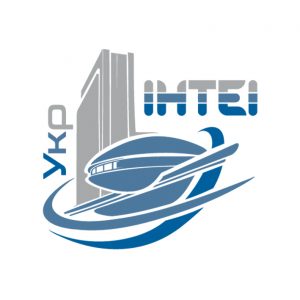http://doi.org/10.35668/2520-6524-2021-2-06
Parkhomenko V. D. — D. Sc. in Engineering, Professor, Adviser of Ukrainian Institute of Scientific and Technical Expertise and Information, Antonovichа Str., 180, Kyiv, Ukraine, 03680; +38 (044)521-00-45; iiv1director@ gmail.com; ORCID 0000-0001-5468-846X
Seki S. — student, Kyiv National University of Trade and Economics, Kioto Str., 19, Kyiv, Ukraine, 02000; +38 (044) 513-33-48; seki.stephan@gmail.com; ORCID: 0000-0003-3865-3990
Parkhomenko H. O. — student, National Transport University, Omelyanovicha-Pavlenka Str., 1, Kyiv, Ukraine, 01010; +38(044) 280-54-09; ORCID: 0000-0002-7574-0850
COOPERATION BETWEEN SMALL OR MEDIUM ENTERPRISES AND TRANSNATIONAL CORPORATIONS IN MODERN CONDITIONS OF SOCIAL AND ECONOMIC DEVELOPMENT
Abstract. In today’s social and economic world economy, multinational companies are a powerful part of corporate business, they play a leading role in development and strengthening the global economic activity. In modern conditions of social and economic development, transnational corporations are becoming the core of a new category of the global post-industrial economy, which constantly integrates many small and medium enterprises, distribution and information networks that form the periphery of the global trans-corporate core with a big number of employees. Today, along with the process of globalization in modern social and economic development, the «knowledge economy» is being introduced with a change in the role of human, which is becoming the main and determining resource of development. Therefore, cooperation between small and medium-sized enterprises and multinational corporations become an important element of progress. We will consider the connection of transnational corporations with the development of the world economy and with small businesses as a dialectical or open system that becomes the core of progress.
Key words: multinational company, human, knowledge economy, information, energy, globalization, economy.
REFERENCES
- Parkhomenko, O. V. (2008). Teoretychni osnovy systemy “informatsiia-znannia” [Theoretical foundations of the system “information-knowledge”]. Kyiv, 172 p.
- Yatskiv, Ya. S., Aleksandrov, O. M., Vavylova, I. B., Zhdanov, V. I., & Kudria, Yu. M. (2005). Zahalna teoriia vidnosnosti: vyprobuvannia chasom [General theory of relativity: time test]. Kyiv. 287 p.
- Romer, P. (1986). Rastushchyi oborot prybыlei y dolhosrochnыi эkonomycheskyi rost [Growing profit and long-term economic growth]. Zhurnal polytycheskoi эkonomyy 94:5 [Journal of Political Economy 94: 5]. P. 1002–1011.
- Zymenkov, R., & Romanova, E. (2008). Amerikanskie TNK za rubezhom: stratehyia, napravlenyia, formu [American TNCs abroad: strategy, directions, forms]. Myrovaia ekonomika y mezhdunarodnue otnoshenyia [World Economy and International Relations]. 8. P. 45–53.
- Davydova, I. O., Velychko, K. Yu., & Pechenka O. I. (2018). Transnatsionalni korporatsii [Transnational corporations]. Kharkiv. 175 p.
- Herasymchuk, V. H., & Voitko S. V. (2009). Mizhnarodna ekonomika [International Economics]. Kyiv. 302 p.
- Starish, O. H. (2005). Systemolohiia [Systemology]. Kyiv. 232 p.
- Parkhomenko, O. V., & Parkhomenko, V. D. (2017). Informatsiino-znannievyi pidkhid do vyznachennia paradyhmy sotsialno-ekonomichnoho rozvytku [Information-knowledge approach to determining the paradigm of socio-economic development]. Nauka, tekhnolohii, innovatsii [Science, technology, innovation]. 1. P. 13–20.
- Nemirovska, O. V. (2016). Formuvannia efektyvnoho mekhanizmu vzaiemodii natsionalnoi ekonomiky z transnatsionalnymy korporatsiiamy [Formation of an effective mechanism of interaction of the national economy with transnational corporations]: Candidate’s thesis. Irpin. 237 p.

